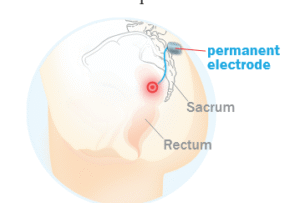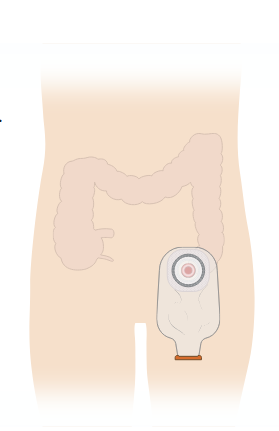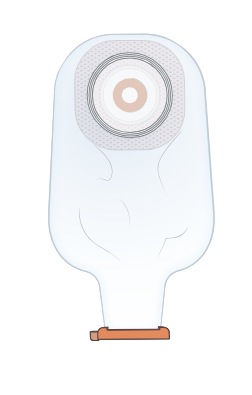
For severe LARS, if more conservative treatment strategies have not helped, you
may be considered for neuromodulation.
What’s neuromodulation?
Neuromodulation is a form of treatment that affects the nerves that control the bowel and muscles around the anus.
Remember at the beginning when we spoke about the nerves that control the bowel and the sphincter muscles? These nerves can be targeted as a treatment.
There are two main sets of nerves that can be targeted: ‘sacral’ and ‘posterior tibial.’“Sacral neuromodulation”, or SNM, is the most widely studied form of neuromodulation used for LARS.
SNM involves placing an electrode near the spine, which can electrically stimulate the nerves that control the bowel and sphincter muscles.
The first step of SNM is to implant a temporary electrode for 2 weeks.
If there is improvement, a permanent electrode can be placed.

If LARS is seriously affecting your quality of life, you can speak to your colorectal specialist about undergoing surgery to create a permanent colostomy.
You may have had a temporary stoma (an ileostomy). A permanent stoma (colostomy) involves the colon.
A colostomy is usually easier to manage than an ileostsomy because the stool that empties into the bag is thicker.
We understand that passing stool from the anus is more natural and typically more convenient. Having a stoma seems like an odd thing to “choose”, but it does offer you relief of your LARS and a way of emptying your bowels that you can more or less be in control of.
Remember that choosing a permanent colostomy requires another surgery. This can lead to any number of complications, such as wound infections, blood clots, serious infections in your belly, and the risks of anesthesia (being put to sleep during surgery). There are also late complications that can happen from having a colostomy, such as a hernia (bulge) around the stoma.
If a permanent colostomy seems like a better alternative to your current situation dealing with LARS, speak to your colorectal specialist to learn more about the risks and benefits.


Copyright ©2025 LARS Collaborative. All rights reserved.
© 2025 Created by Algorythms